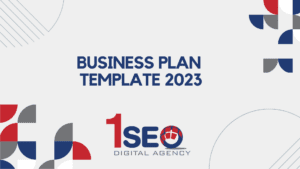Doesn’t the Engagement Come Before the Marriage?
Without spending any time to analyze and overthink it, the concept of “customer retention” seems to be at odds with, and in direct contradiction to,

Boston’s legal market is one of the most competitive in the country, driven by strong demand for corporate law, finance, healthcare, education, and technology-related legal services. With over 20,000 attorneys practicing in the city, standing out requires a digital marketing strategy tailored to Boston’s unique client base, legal landscape, and technological trends. Incorporating artificial intelligence into these strategies can further enhance personalized marketing campaigns and advanced website optimization, making it essential for modern digital marketing success.

Boston is a hub for digital marketing, with a plethora of agencies and professionals offering a wide range of services. The city’s digital marketing landscape is characterized by a strong presence of local agencies, each with their unique strengths and specialties. From social media marketing to content marketing, website design, and predictive analytics, Boston digital marketing agencies offer a broad spectrum of services to help businesses thrive in the digital age.
To navigate this landscape, it’s essential to understand the different types of digital marketing agencies in Boston. Some agencies specialize in specific industries, such as healthcare or finance, while others focus on particular services, like SEO or PPC. Understanding the strengths and weaknesses of each agency can help businesses find the right partner to achieve their digital marketing goals.
A winning digital marketing strategy is crucial for businesses to succeed in the competitive Boston market. To develop a successful strategy, businesses must first understand their target audience, including their needs, preferences, and behaviors. This involves conducting market research, analyzing customer data, and creating buyer personas.
Next, businesses must define their digital marketing goals, whether it’s increasing website traffic, generating leads, or driving sales. A clear understanding of these goals will help guide the development of a comprehensive digital marketing strategy that aligns with the business’s overall objectives.
A winning digital marketing strategy should also include a mix of digital marketing channels, such as social media marketing, content marketing, email marketing, and paid advertising. Each channel should be carefully selected based on its ability to reach and engage the target audience.
With Boston’s dense population and neighborhood-centric clientele, a well-optimized local SEO strategy is essential. Law firms should:
Optimize their Google Business Profile with accurate name, address, and phone number (NAP) details.
Target location-specific keywords such as “Boston corporate lawyer” or “Cambridge personal injury attorney.”
Build citations in legal directories and Boston-based business associations.
Encourage satisfied clients to leave Google reviews to improve local search rankings.
Utilize geo-targeted content marketing to attract potential clients in specific neighborhoods like Back Bay, Beacon Hill, or Cambridge.
Boston law firms must create authoritative, localized content to establish credibility and attract prospective clients. Effective content strategies include:
Blog posts addressing Massachusetts-specific legal issues (e.g., “How to Navigate Non-Compete Agreements in Massachusetts”).
Legal guides tailored to Boston’s major industries, such as financial regulations or startup law.
Thought leadership articles published in local legal publications or the Massachusetts Bar Association website.
Webinars or podcasts featuring Boston-based attorneys discussing trending legal topics.
Multilingual content to cater to Boston’s diverse immigrant communities, particularly in Spanish, Portuguese, and Chinese.
In addition, brainstorming sessions and collaborative meetings between businesses and local digital marketing agencies often lead to new ideas, resulting in innovative strategies and creative solutions tailored to the client’s unique challenges and objectives.
A well-designed website that loads quickly and offers an intuitive user experience is critical for client retention and lead generation. Boston firms should:
Ensure page load times are under 3 seconds to prevent user drop-off.
Optimize for mobile-first indexing, as over 60% of legal searches happen on mobile devices.
Use clear calls-to-action (CTAs), such as “Schedule a Free Consultation.”
Incorporate secure HTTPS encryption to protect client data and build trust.
Utilize AI-driven chatbots to engage visitors in real-time and provide quick responses to common legal inquiries.
Boston’s legal industry is embracing AI-driven tools to enhance marketing and operational efficiency. Firms should leverage:
AI-powered chatbots to handle 24/7 client inquiries and improve engagement.
Predictive analytics to identify and target potential clients based on online behavior.
AI-driven contract analysis tools to increase efficiency in corporate legal work.
Personalized content recommendations based on past visitor interactions to increase conversions.
Boston law firms must adhere to strict Massachusetts Bar Association advertising guidelines. Key considerations include:
Avoid misleading claims regarding legal expertise or case outcomes.
Clearly disclose paid advertising, including sponsored search results.
Maintain client confidentiality, especially when using AI tools for marketing.
Ensure all digital content complies with legal advertising regulations.
Balance aggressive marketing with ethical considerations, particularly in SEO and online lead generation.

Despite its potential, social media remains underutilized in Boston’s legal industry. Effective strategies include:
LinkedIn articles showcasing attorneys as thought leaders.
Facebook and Instagram ads targeting specific demographics (e.g., family law ads for young professionals in Back Bay).
Engagement in Boston-area legal and business networking groups.
Video testimonials and client success stories shared across social platforms.
Participation in online legal Q&A forums to establish expertise.
Boston’s legal market trends influence which practice areas receive the highest demand. Firms should focus on:
Business Law (20% of Boston’s legal market): Serving startups and financial institutions.
Real Estate Law (10%): Addressing Boston’s competitive property market.
Intellectual Property Law: Supporting Boston’s thriving tech and biotech industries.
Family Law and Personal Injury: Targeting middle-income Bostonians in need of legal representation.
Immigration Law: Meeting the needs of Boston’s immigrant population, particularly for visa and asylum cases.
Boston’s legal and business communities are interconnected, making networking essential. Firms should:
Sponsor Boston Bar Association events to increase visibility.
Engage with local chambers of commerce and industry-specific groups.
Partner with local non-profits for pro bono work to enhance brand reputation.
Attend industry-specific events like MassChallenge to build relationships with startup founders.
Offer free legal clinics to serve underprivileged communities and build goodwill.
Given Boston’s high competition, PPC advertising can deliver fast results. Best practices include:
Bidding on hyper-specific, high-intent keywords like “Boston employment discrimination lawyer.”
Using geo-targeted ads to focus on key Boston neighborhoods.
A/B testing ad copy to refine conversion rates.
Retargeting past website visitors with Google Ads to increase conversion chances.
To refine marketing strategies and maximize return on investment, firms should track:
Website traffic and session duration via Google Analytics.
Conversion rates from consultation form submissions.
Cost-per-click (CPC) and return on ad spend (ROAS) for PPC campaigns.
Social media engagement and lead generation metrics.
Search ranking improvements for Boston-based legal keywords.

Finding the right digital agency partner is critical for businesses to achieve their digital marketing goals. With so many agencies in Boston, it can be overwhelming to choose the right one. To find the right partner, businesses should start by defining their needs and goals. What services do they require? What are their budget constraints?
Next, businesses should research potential agencies, evaluating their expertise, experience, and reputation. This involves reviewing case studies, reading reviews, and asking for referrals. A good agency should have a strong understanding of the business’s industry and target audience.
Finally, businesses should meet with potential agencies to discuss their needs and goals. This is an opportunity to assess the agency’s communication style, creativity, and ability to think strategically. A good agency should be able to provide actionable insights and recommendations that align with the business’s objectives.
Digital marketing can be complex and nuanced, and even the best-laid plans can go awry. To avoid common digital marketing mistakes, businesses must stay informed about the latest trends and best practices. This involves staying up-to-date with the latest industry news, attending conferences and workshops, and participating in online forums and discussions.
One common mistake is failing to define clear goals and objectives. Without a clear understanding of what they want to achieve, businesses can waste time and resources on ineffective digital marketing strategies.
Another mistake is neglecting to track and measure performance. Without data and analytics, businesses can’t evaluate the effectiveness of their digital marketing efforts or make informed decisions about future strategies.
Finally, businesses should avoid trying to do too much too soon. Digital marketing is a marathon, not a sprint. It takes time, effort, and patience to develop a successful digital marketing strategy that drives real results.

For Boston law firms, digital marketing success requires more than just an online presence—it demands a data-driven, localized approach that aligns with client needs and market trends. By optimizing for local search, embracing AI and analytics, and focusing on high-demand practice areas, firms can establish themselves as leading legal authorities in a highly competitive market.
Staying informed about Boston’s legal industry trends, firm size distributions, and emerging technology adoption will further solidify a firm’s ability to attract and retain clients in an evolving digital landscape. Additionally, embracing diversity and inclusion, addressing ethical considerations, and leveraging Boston’s academic and professional networks will provide a strategic advantage in an increasingly competitive legal industry.
Without spending any time to analyze and overthink it, the concept of “customer retention” seems to be at odds with, and in direct contradiction to,

Are you ready to take your business to the next level? Starting a business can seem overwhelming, but it doesn’t have to be. A business
We solve business problems, take a consultative approach to every client engagement, and find actionable solutions that will help your organization.